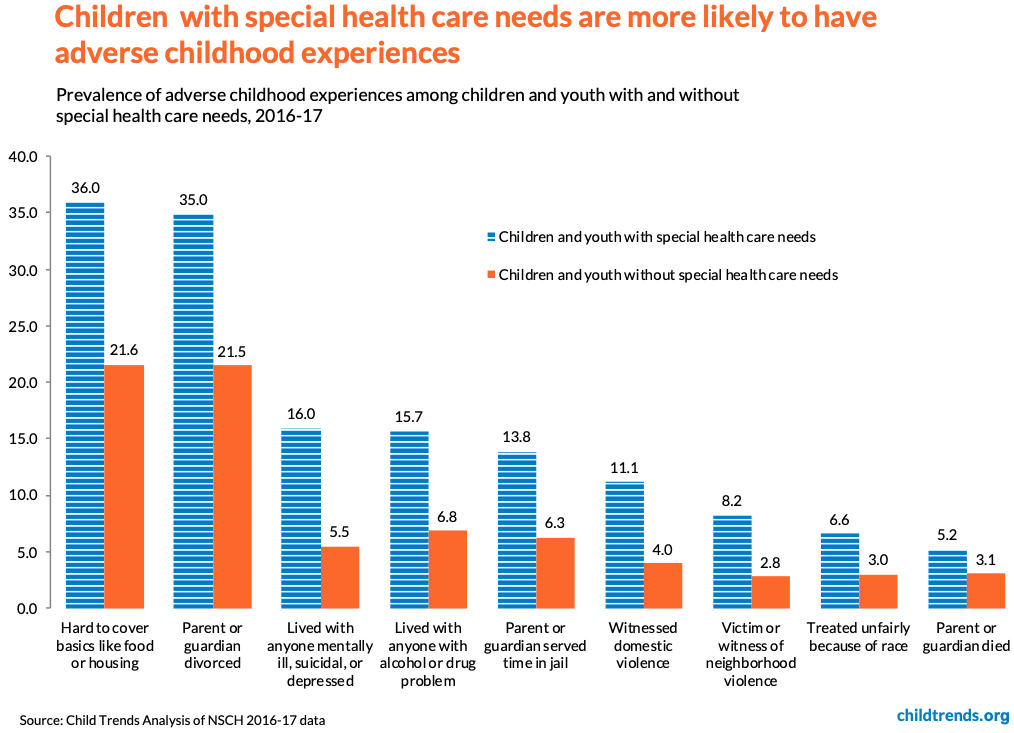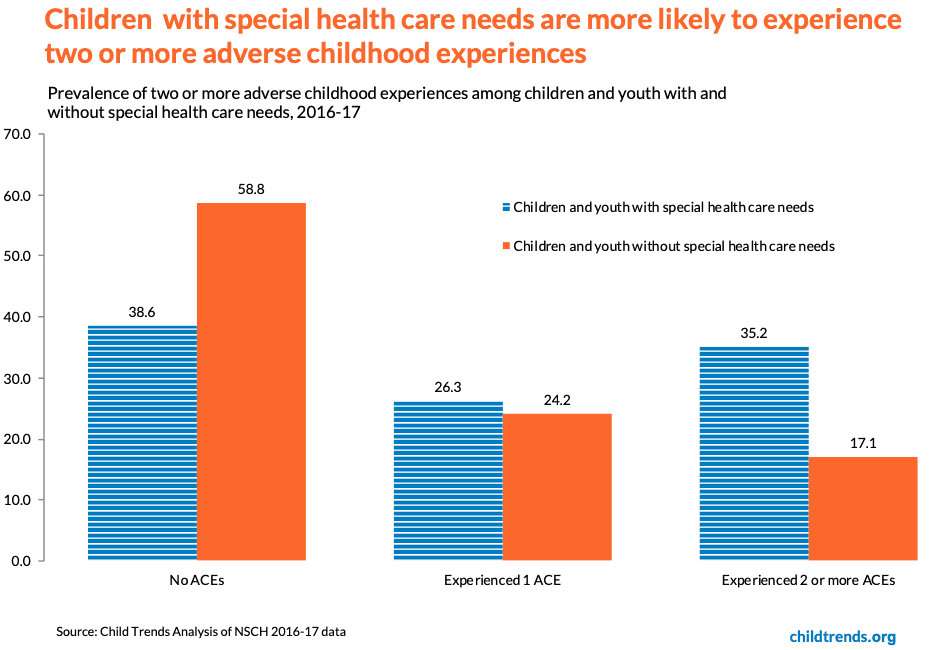The prevalence of adverse childhood experiences (ACEs) is higher among children and youth with special health care needs than among their peers without special health care needs, according to Child Trends’ analysis of data from the 2016-17 National Survey of Children’s Health (NSCH). The survey asks parents or guardians to report whether their child has experienced any of nine ACEs.

The percentage of children and youth with special health care needs who have had an incarcerated parent, witnessed domestic violence, been a victim of or witnessed violence in the neighborhood, lived with an adult with substance abuse or mental illness, or experienced racism is twice as high as among those without special health care needs. These adverse experiences can lead to toxic stress, which increases risk to an individual’s physical, social, and emotional health and well-being. Addressing the causes and consequences of the adversities that affect the well-being of children and youth with special health care needs is essential to creating more equitable outcomes for them.
In addition to identifying the breadth of these experiences for the population of children and youth with special health care needs, our analysis also shows that these young people are more likely to experience two or more ACEs (35 percent, compared with 17 percent of children and youth without special health care needs).

The experiences included in the survey represent only a subset of childhood adversities, and thus the survey data should be considered conservative estimates of cumulative exposure—that is, exposure to two or more ACEs. Other examples of childhood adversity include natural disasters, homelessness, forced displacement, and bullying. Research has shown that exposure to multiple ACEs is associated with cumulative negative effects on numerous health and behavioral outcomes, such as mental health disturbances, substance abuse, and physical disorders.
Exposure to ACEs and other forms of childhood adversity does not always result in trauma or toxic stress: Supportive, positive relationships with one or more adults, as well as positive coping strategies, may mitigate some negative effects. However, prolonged or frequent exposure to adversity without adequate support may lead to toxic stress that can negatively affect brain development and health.
Given the evidence that children and youth with special health care needs are more likely to experience adversities, they deserve greater attention from health and education providers, and from other social services working to incorporate trauma-informed care into practices, procedures, and programs. Such institutions should work to ensure that trauma-informed approaches are integrated into places and environments where these children (and their caregivers) receive services.
© Copyright 2025 ChildTrendsPrivacy Statement
Newsletter SignupLinkedInYouTubeBlueskyInstagram
